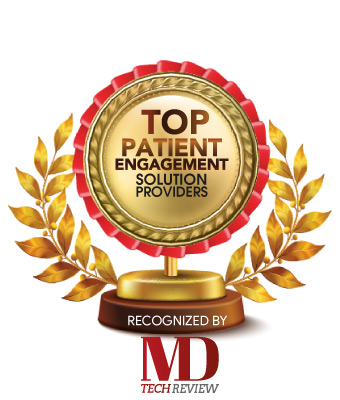For many patients in the United States, access to healthcare facilities is undeniably one of the most difficult obstacles to overcome. With the support of breakthrough telemedicine apps, a lot more patients can access healthcare services thanks to digital health.
FREMONT, CA: As digital health gains traction, medical professionals will be required to change and adapt at a rate that will undoubtedly surpass previous years. As the promise of digital health becomes more widely recognized, more patients are expecting doctors to provide better treatment that is tailored to their specific needs. Not only that, but they expect the activities to fulfill their needs in a way that is convenient for their schedules and lifestyles.
Here are four major digital health trends revolutionizing patient care:
Internet of Things (IoT)
The Internet of Things (IoT) is known for delivering highly connected hardware to the healthcare sector, which has dramatically enhanced patient care. It has also aided in the improvement of patient participation as well as clinical cooperation. The healthcare sector has been greatly changed by wearable technology, which has made patient monitoring much simpler. Wearable technology has emerged as an effective method for self-monitoring personal wellbeing in today's digital era when patients are more focused on preventive treatment and health maintenance. Thus, healthcare companies are pouring money into proactive wearable technology systems that can keep track of a patient's wellbeing and predict the probability of a major health problem. Wearable technologies have made predictive healthcare simpler and personalize the overall healthcare experience to improve the patient experience.
Artificial Intelligence (AI)
 The most popular application of AI-based technology in the healthcare sector is chatbots and virtual health assistants. Chatbots can perform various tasks, ranging from diagnosis to serving as customer service representatives and even therapists. However, medical imaging and precision medicine are two of AI's most important applications. Using AI-assisted medical imaging, physicians and specialties can make more precise diagnoses and have better care plans. In the same way, AI is taking the lead in drug development and genomics. Patients now have access to personalized treatments tailored to their genetic code and personal lifestyle thanks to AI's advanced pattern recognition capabilities.
The most popular application of AI-based technology in the healthcare sector is chatbots and virtual health assistants. Chatbots can perform various tasks, ranging from diagnosis to serving as customer service representatives and even therapists. However, medical imaging and precision medicine are two of AI's most important applications. Using AI-assisted medical imaging, physicians and specialties can make more precise diagnoses and have better care plans. In the same way, AI is taking the lead in drug development and genomics. Patients now have access to personalized treatments tailored to their genetic code and personal lifestyle thanks to AI's advanced pattern recognition capabilities.
Delivery of Health Care
The increased patient outreach is one of the most significant advantages of digital health. For many patients in the United States, access to healthcare facilities is undeniably one of the most difficult obstacles to overcome. With the support of breakthrough telemedicine apps, a lot more patients can access healthcare services thanks to digital health. These patients represent a wide range of demographics, both rural and urban settings, socioeconomic strata, and work dynamics. Telemedicine has grown in popularity as a cutting-edge tool for bridging healthcare gaps.
Big Data
EHRs (Electronic Health Records) have emerged as a promising digital health tool that allows the use of Big Data to produce positive health outcomes. Physicians can use Big Data analytics to make meaningful predictions about their patients' health, make better diagnoses, and provide them with the best care plans possible. Healthcare workers can deliver meaningful and high-quality health outcomes at a low cost through these coordinated activities. Furthermore, using EHR EMR software's patient record review, the rate of prescription errors is substantially reduced. Simultaneously, predictive analysis enables hospitals and private practices to forecast patient inflows and, as a result, make reliable staffing predictions.



